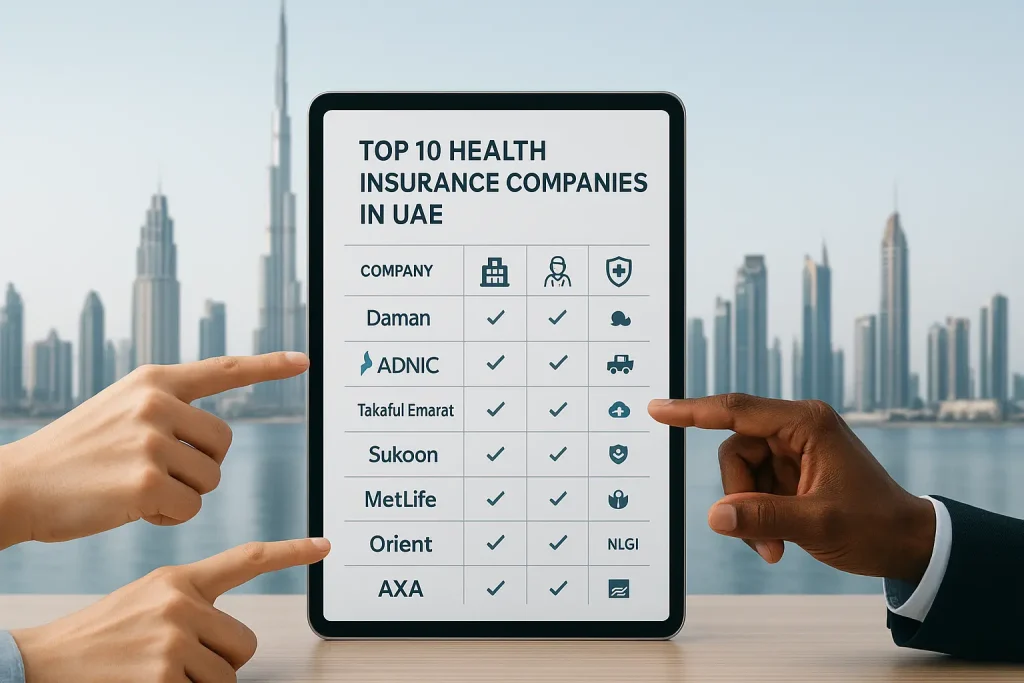The Definitive Guide to Thriving in Dubai: A High-E-E-A-T Strategy for Expats and Professionals
How to Stay Healthy In Dubai is a question that requires more than generic advice; it demands a strategic playbook tailored for a city defined by high-stakes careers, luxury dining, and intense climate. For the busy professional and the global expatriate, wellness isn’t just about feeling good—it is “career insurance ” directly fueling the productivity, focus, and superior decision-making necessary to succeed in the Gulf.
In a 2025 survey, improving physical fitness emerged as the primary goal for UAE residents, signaling a widespread commitment to wellness. This comprehensive guide integrates the latest data from the Dubai Health Authority (DHA) and local success stories to help you move beyond common hurdles—like the time crunch, high-pressure stress, and navigating the diverse food scene—and build a truly sustainable, healthy life in Dubai.
I. Strategic Fitness: Integrating the DFC 30×30 Mandate
The biggest challenge to physical activity in Dubai is consistency, especially given the climate and a packed professional schedule. Our strategy focuses on making movement a seamless part of your daily routine, anchored by the spirit of the Dubai Fitness Challenge (DFC).
Leveraging Dubai’s World-Class Infrastructure
Dubai is engineered for activity. During the cooler months (typically October to May), the city transforms, offering specific, high-utility spaces for exercise :
Soft-Track Running
Take advantage of bespoke public areas and beaches that now boast specialized, soft-surface tracks, which are excellent for running and minimizing impact on joints.
Green Spaces
Local parks like Safa Park and Zabeel Park offer spacious greenery, jogging tracks, and lake views perfect for unwinding after work.
The Climate Strategy: Avoiding Peak Heat
Due to the intense heat and the high-pressure working culture, successful fitness integration demands strategic timing. To avoid the hottest hours of the day :
Sunrise and Sunset Workouts
Exercise classes—including pool-based activities like Aqua Zumba—are often scheduled at sunrise or sunset when temperatures are lower.
Indoor Exploration
When outdoor activities aren’t feasible, utilize Dubai’s extensive network of high-end, air-conditioned gyms and fitness studios.
The Power of Micro-Movements and DFC Goal Setting
The DFC, initiated by His Highness Sheikh Hamdan bin Mohammed bin Rashid Al Maktoum, challenges everyone to commit to 30 minutes of activity for 30 days (30×30). For the time-poor professional, this goal must be broken down.
Walking Meetings
Suggest walking meetings instead of sitting in a boardroom. This helps you stay active while remaining productive and is a powerful way to incorporate movement into a corporate day.
Quick Breaks
Start small. As one Dubai-based lawyer successfully demonstrated, beginning with just 10 minutes of walking during coffee breaks was enough to build the stamina necessary to eventually complete the Dubai Run.
DFC Validation: Quantifying the Mental and Physical Payoff
The DFC’s impact is measurable and validated by official public health data. The 2024 DFC edition saw a record-breaking 2,735,158 participants, marking a 14% increase from the previous year. Crucially, DFC data highlights tangible benefits for participants beyond just physical conditioning :
This proves that integrating the 30×30 concept is a valid, officially supported method for enhancing resilience and combating the high-pressure environment.
II. Nutritional Mastery: Eating Healthy in Dubai’s Luxury Landscape
Navigating Dubai’s world-class dining scene requires a strategy that goes beyond simple discipline. It involves adhering to evidence-based nutrition science while making smart, localized choices.
Adhering to Clinical Standards, Localized Impact
To lower the risk of chronic conditions like heart disease, diabetes, and obesity, nutritional claims must align with international standards reinforced by the Ministry of Health and Prevention (MOHAP).
Smart Fat Swaps
Replace saturated fats (such as those found in ghee or coconut oil) with non-saturated alternatives like olive oil, fish, soy, or nuts.
The WHO Plate Formula
Use the simple World Health Organization (WHO) endorsed formula for every meal: one quarter protein, one quarter carbohydrates, and one half vegetables. Focus on grilled, steamed, or boiled foods over deep-fried options.
The WHO Healthy Plate Formula
Protein
Carbs
Vegetables
Tactical Dining Out and Portion Control
Dubai’s restaurant portions are notoriously generous, making portion control a critical skill.
Strategic Scanning
When dining out, opt for restaurants that clearly list healthy menus, including vegan, gluten-free, and low-calorie options.
The Sharing Strategy
Request smaller portions or simply share meals with dining companions to avoid overeating and managing caloric intake effectively.
Integrating Healthy Local Cuisine
Dubai’s cuisine offers inherently healthy options that reflect the region’s heritage. Explore Emirati cuisine, which features barbecued meats, pulses, stews, and salads. While rich, deep-fried desserts like Luqaimat (sweet deep-fried dough) and Knafeh (sweetened cheese) are delicious, they should be reserved for special occasions and enjoyed in strict moderation.
Time-Saving Solutions for the Work Week
For the marketing manager who faces a heavy workload, cooking at home may not be feasible. Leverage Dubai’s extensive service economy:
Meal Prep Success
A Dubai-based marketing manager successfully replaced unhealthy takeout by utilizing meal prep services twice a week, directly improving her energy and focus at work.
AI Tracking
Utilize AI-driven food tracking apps like Foodvisor, which can analyze meal photos to estimate calorie and nutritional content—a perfect tool for tracking consumption in a city with heavy takeout and dining options.
III. Mental Wellness and Resilience in the High-Pressure Gulf
In a high-pressure, competitive environment, chronic stress is a known risk factor for physical and mental health issues. Mental resilience is a critical professional asset.
Stress Management and Local Resources
Effective management requires consistent practices and access to local amenities:
Mindfulness Practices
Integrate mindfulness exercises, deep breathing, or yoga into your daily routine. Studios like Urban Yoga and Yoga House offer accessible classes for all levels.
Rejuvenation
Take advantage of world-class rejuvenation options like the Talise Spa at Burj Al Arab or newer, science-backed solutions like ReLounge Pods for sensory-based healing and deep recovery from burnout.
Expat Life and Building a Support System
Expatriates often face unique psychological hurdles, including homesickness and cultural adjustment. Building a robust support system is non-negotiable.
Community Engagement
Joining a group activity provides essential accountability and a support network. An expat teacher, for instance, managed her stress and improved consistency by joining a weekly yoga group at Safa Park.
Seeking Professional Help
If stress becomes overwhelming, local therapy and counseling services are available.
Setting Digital and Work Boundaries
The high-stakes corporate culture demands firm boundaries to prevent work from encroaching on personal life.
Unplugging
Set firm boundaries and avoid checking work emails after hours. Consciously take breaks from technology to disconnect from work and social media.
Time Management
Prioritize self-care and structure your personal time using organizational tools.
IV. E-E-A-T Supremacy: DHA Credibility and Climate Adaptation
The content’s authority is established by linking health advice directly to Dubai’s official health and municipal standards.
Verifiable Healthcare Infrastructure Growth (DHA Data)
Expatriates require assurance that the local healthcare system is robust. Recent statistics from the Dubai Health Authority (DHA) provide that proof :
| Metric | 2019 | 2023 |
|---|---|---|
| Healthcare Facilities | 3,431 | 4,922 |
| Government & Private Hospitals | – | 53 |
This expansion includes 53 government and private hospitals.
The Dubai Climate Survival Kit
Adapting to the heat is paramount to staying healthy. This involves precise, year-round protocols, especially during the hottest months of July and August.
- Hydration is Key: Stay hydrated by consistently drinking water throughout the day. You must monitor your fluid and salt intake during intense heat to prevent dehydration.
- Sun Safety: Use sunscreen religiously and avoid prolonged exposure during peak sun hours. If you must be outside, seek shade and use protective gear.
- Solving the Vitamin D Challenge: Despite the plentiful sunlight, many residents lack direct sun exposure due to climate avoidance. Offset any lack of direct sunlight by consuming oily fish or using fortified foods or supplements.
Cultural Competence in Health: Understanding Traditional Practices
For content to be truly authoritative in a diverse market, it must display cultural competence. Research indicates a strong connection between Arabic culture, religion, and healthcare practices, with many families using traditional remedies (such as herbal cures or Quranic healing) as a first line of defense against illnesses.
While respecting these practices, it is essential that the use of traditional remedies does not result in delays in seeking appropriate, evidence-based medical care for critical health issues.
V. Tools, Resources, and Frequently Asked Questions (FAQ)
Tools and Resources
Food Tracking
Foodvisor utilizes AI to help you manage caloric intake in Dubai’s dining environment.
Frequently Asked Questions
Q1: Is it safe to exercise outdoors in Dubai all year round?
A: Outdoor exercise is best during the cooler months (October to May). During summer, schedule activities only during sunrise or sunset hours, utilize air-conditioned indoor facilities, or engage in pool-based exercise like Aqua Zumba.
Q2: How has the healthcare system changed for expats recently?
A: The healthcare sector has expanded significantly. The number of DHA-licensed facilities grew from 3,431 in 2019 to 4,922 in 2023, signaling a robust and progressive infrastructure for all residents.
Q3: How can I manage the huge portion sizes when dining out in Dubai?
A: Practice tactical dining. Always aim for the WHO plate formula (half vegetables). Strategically share meals with companions or request a takeaway box for half your dish immediately.
Q4: What data validates the effectiveness of the Dubai Fitness Challenge?
A: DFC data from 2024 shows that beyond fitness, 15% of participants reported improved psychological well-being, linking the 30×30 commitment directly to reduced anxiety and stress management for professionals.
Q5: Should I use traditional Arabic remedies mentioned in local culture?
A: Cultural remedies (herbal treatments, etc.) are an important part of Arabic heritage. However, they should not replace or delay seeking evidence-based professional medical care, especially for serious health concerns.
Conclusion: Making Dubai Your Wellness City
Staying healthy in Dubai is not about compromise; it’s about strategic advantage. By moving past generic advice and committing to a hyper-localized plan—one that leverages Dubai’s unique infrastructure, adopts the DFC 30×30 goal, and integrates verifiable data from the DHA —you can transform your high-pressure life into a model of professional resilience.
The key to thriving here is consistency and confidence in the resources around you. Start small, set your boundaries, and utilize the city’s commitment to wellness to make your health the most valuable asset in your high-stakes career.







